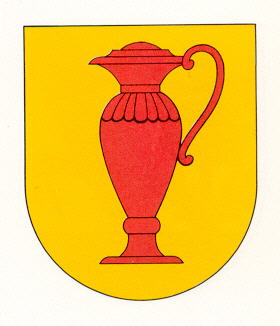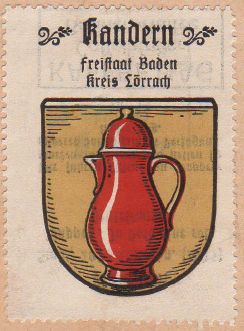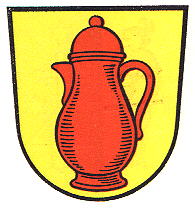Kandern: Difference between revisions
Knorrepoes (talk | contribs) No edit summary |
Knorrepoes (talk | contribs) m (Text replace - "|width="15%"|50 px|right |}" to "|width="15%"|50 px|right |}<seo title="Wappen, Gemeindewappen" />") |
||
| Line 3: | Line 3: | ||
|width="70%" align="center" |'''Heraldry of the World<br/>Civic heraldry of [[Germany]] - [[Deutsche Wappen|Deutsche Wappen (Gemeindewappen/Kreiswappen)]]''' | |width="70%" align="center" |'''Heraldry of the World<br/>Civic heraldry of [[Germany]] - [[Deutsche Wappen|Deutsche Wappen (Gemeindewappen/Kreiswappen)]]''' | ||
|width="15%"|[[File:Germany.jpg|50 px|right]] | |width="15%"|[[File:Germany.jpg|50 px|right]] | ||
|} | |}<seo title="Wappen, Gemeindewappen" /> | ||
Revision as of 17:38, 5 November 2012
| Heraldry of the World Civic heraldry of Germany - Deutsche Wappen (Gemeindewappen/Kreiswappen) |
KANDERN
State : Baden-Württemberg
District (Kreis) : Lörrach (until 1973 Müllheim)
Additions : 1974 Feuerbach, Holzen, Riedlingen, Sitzenkirch, Tannenkirch, Wollbach
Official blazon
In Gold eine rote Kanne mit Deckel.
Origin/meaning
The arms were officially granted on November 11, 1975.
The jug (Kanne) is a canting symbol, which was first used on border stones as a village sign in the 18th century. Even though Kandern was a relatively large village and a town since the 16th century, there are no old seals known. The oldest seals date from the early 19th century and show a shield with the jug. All later seals and images show thus mug as arms, but the size and shape of the jug have changed considerably during the last two centuries.
| The arms in the Kaffee Hag albums +/- 1925 |
The arms as shown in the 1960s |
Literature : Stadler, K. : Deutsche Wappen - Bundesrepublik Deutschland. Angelsachsen Verlag, 1964-1971, 8 volumes.



